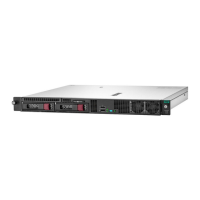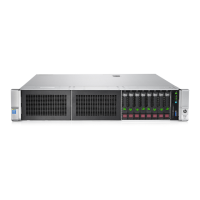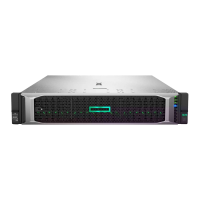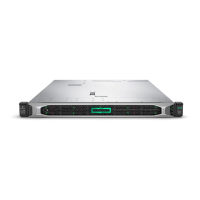3. Enter the name of a file on an attached media device. Supported formats include .der, .cer, and .crt.
4. (Optional) To apply a signature GUID to this key:
a. Select Signature GUID (optional) and press Enter.
b. Enter an ID and press Enter. Use the following GUID format (36 characters):
11111111-2222-3333-4444-1234567890ab.
• For Hewlett Packard Enterprise certificates, enter F5A96B31-DBA0-4faa-A42A-7A0C9832768E
• For Microsoft certificates, enter 77fa9abd-0359-4d32-bd60-28f4e78f784b
• For SUSE certificates, enter 2879c886-57ee-45cc-b126-f92f24f906b9
5. Select Commit changes and exit.
Delete KEK Entry
Use this option to delete a Key Exchange Key.
Deleting a KEK entry
Procedure
1. From the System Utilities screen, select System Configuration > BIOS/Platform Configuration
(RBSU) > Server Security > Secure Boot Settings > Advanced Secure Boot Options > Platform Key
(PK) Options > Delete KEK Entry and press Enter.
2. Select a key from the list and press Enter.
3. Press Enter to delete the key.
Allowed Signatures Database (DB) Options
The Allowed Signatures Database maintains signatures of codes that are authorized to run on the platform.
This menu displays the following options:
• Enroll Signature (Allowed DB)
• Delete Signature (Allowed DB)
Enroll Signature (Allowed DB)
Use this option to enroll a signature in the Allowed Signatures Database. This database maintains signatures
of codes that are authorized to run on the platform.
102 Delete KEK Entry
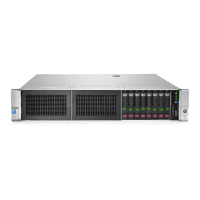
